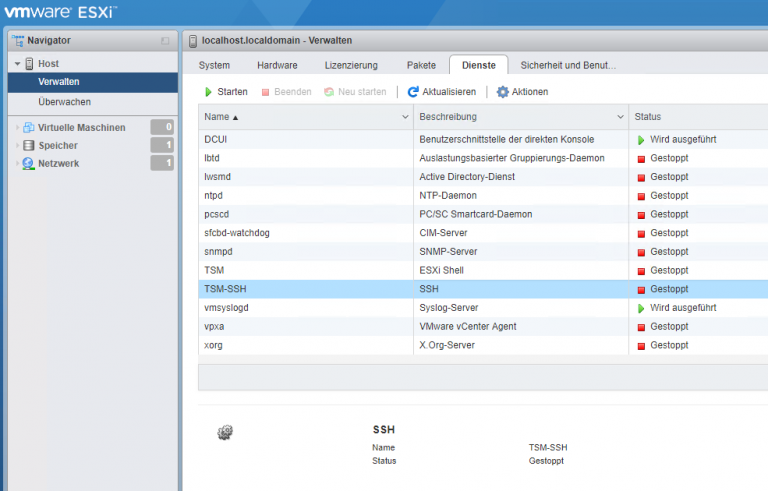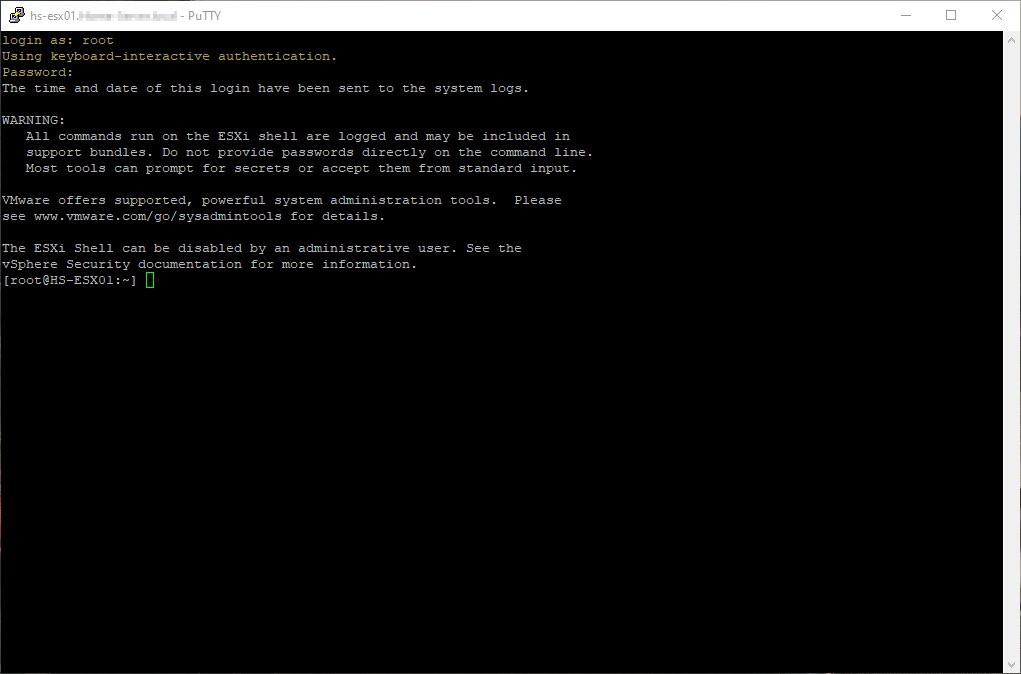

Which produced this output: Error: The primary GPT table states that the backup GPT is located beyond the end of disk. At least ESXi didn't see it the first time around until I did that.īefore I ran that command, I ran this: partedUtil getptbl /vmfs/devices/disks/naa.600508b1001cabcdaf821b64d8080017 I think it has to do with the fact that the Dell server it came out of had one type of SATA adapter, and when I added it in to the HP server it wanted to add it as a Volume in the array manager. Not the end of the world since it was just a workstation backup target drive. That fixed the problem with the drive only showing up in Devices with a partition type of "unknown" but also wiped the drive. So I ended up having to SSH in to the ESXi host and give it the command: partedUtil mklabel /vmfs/devices/disks/naa.600508b1001cabcdaf821b64d8080017 gpt In this case it was going to take hours and two stepping it would have meant getting up in the middle of the night to start the second step. On a small VM without much data, it doesn't take too long.
ESXI SSH COPY VIRTUAL MACHINE DOWNLOAD
In the past I have used vmware converter or used the vSphere client to download all the files to a windows box and then upload them to the new host. The VM was on a bunch of small 136GB SAS drives and the new server has two 1TB SATA drives in a mirror, so I couldn't just move all the drives over and do a local data store copy. In addition it was going to be way quicker to physically move that one drive over to the new server. I would have considered moving them to HyperV, but they had a SATA drive that contained workstation backups that needed to move over to the new server. With that command underway you will get real time statistics like this: Server 2013_1-flat.vmdk 17% 75GB 19.1MB/s 10:53:54 ET You need to use a double quote outside a single quote as shown in this example: scp 'Server 2013_1-flat.vmdk' :/vmfs/volumes/5636b7f0-e5b4c691-871b-94188238d4a4/"'Server 2013'" Unfortunately, you can't just copy and paste that path to your scp command line. When you tab out the filename, it puts a \ in to escape out the space. My issue came in that I had spaces in the filename.

Scp sourceFile :destinationPathĪnd then you get prompted for the password.Īt that point, your path will change to the actual path. For example: ssh 192.168.43.7Īnd you should get prompted to accept the RSA key fingerprint and then for a password. Once you have done that, should should be able to ssh from one host to the other as a test. If you don't when you run the scp command you'll get a time out error. Then you have to open the firewall for the SSH client. First SSH had to be started on each host: In order for that to work, a few things had to be done. It was less than straight forward because of spaces in the filename. I ended up using scp in ESXi to copy straight from the old host to the new host. They had a Windows Server Essentials VM running on VMware ESXi free. Small non for profit bought a new server to replace the ebay special they have been running on for the last 4 years. You may get messages like “rekeyed outbound cipher” “rekeyed inbound cipher” with stalled status.So I ran in to the following scenario. Scp scp /vmfs/volumes/datastore1/server1/* Example of scp command “rekeyed outbound cipher” “rekeyed inbound cipher” and copy process is getting stalled errorĪfter you run scp command to copy the data across to destination ESXi.


 0 kommentar(er)
0 kommentar(er)
